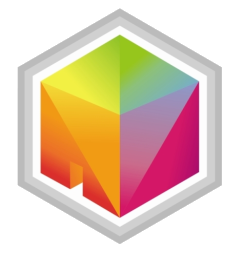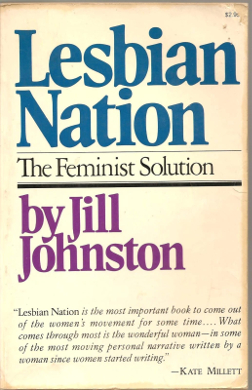Related Research Articles
The Lesbian Avengers were founded in 1992 in New York City, the direct action group was formed with the intent to create an organization that focuses on lesbian issues and visibility through humorous and untraditional activism. The group was founded by six individuals: Ana Maria Simo, Anne Maguire, Anne-Christine D'Adesky, Marie Honan, Maxine Wolfe, and Sarah Schulman.

Lorraine P. Segato is a Canadian pop singer-songwriter, best known as the lead vocalist for and a principal songwriter of new wave and pop rock group The Parachute Club, with which she continues to perform.

Gay Liberation Front (GLF) was the name of several gay liberation groups, the first of which was formed in New York City in 1969, immediately after the Stonewall riots. Similar organizations also formed in the UK, Australia and Canada. The GLF provided a voice for the newly-out and newly radicalized gay community, and a meeting place for a number of activists who would go on to form other groups, such as the Gay Activists Alliance, Gay Youth New York, and Street Transvestite Action Revolutionaries (STAR) in the US. In the UK and Canada, activists also developed a platform for gay liberation and demonstrated for gay rights. Activists from both the US and UK groups would later go on to found or be active in groups including ACT UP, the Lesbian Avengers, Queer Nation, Sisters of Perpetual Indulgence, and Stonewall.

The ArQuives: Canada's LGBTQ2+ Archives, formerly known as the Canadian Lesbian and Gay Archives, is a Canadian non-profit organization, founded in 1973 as the Canadian Gay Liberation Movement Archives. The ArQuives acquires, preserves, and provides public access to material and information by and about lesbian, gay, bisexual, transgender, queer, and two-spirit communities primarily in Canada.

A dyke march is a lesbian visibility and protest march, much like the original Gay Pride parades and gay rights demonstrations. The main purpose of a dyke march is the encouragement of activism within the lesbian and sapphic community. Dyke marches commonly take place the Friday or Saturday before LGBTQ pride parades. Larger metropolitan areas usually have several Pride-related happenings both before and after the march to further community building; with social outreach to specific segments such as older women, women of color, and lesbian parenting groups.
Rites was a Canadian magazine, published for gay, lesbian, bisexual, and transgender communities in Canada from 1984 to 1992.
Radical lesbianism is a lesbian movement that challenges the status quo of heterosexuality and mainstream feminism. It arose in part because mainstream feminism did not actively include or fight for lesbian rights. The movement was started by lesbian feminist groups in the United States in the 1950s and 1960s. A Canadian movement followed in the 1970s, which added momentum. As it continued to gain popularity, radical lesbianism spread throughout Canada, the United States, and France. The French-based movement, Front des Lesbiennes Radicales, or FLR, organized in 1981 under the name Front des Lesbiennes Radicales. Other movements, such as Radicalesbians, have also stemmed off of the larger radical lesbianism movement. In addition to being associated with social movements, radical lesbianism also offers its own ideology, similar to how feminism functions in both capacities.
Mama Quilla II was a Canadian rock band that first performed together in 1977 in Toronto and dissolved in 1982. Although the band recorded only a single EP as Mama Quilla II, after 1982 a revised lineup evolved into the influential pop band Parachute Club.
The Brunswick Four were four lesbians involved in a historic incident in Toronto, Ontario in 1974. The four were evicted from the Brunswick House, a working-class beer hall on Bloor Street, and subsequently arrested, and three were later tried in Ontario Court for obstruction of justice. Two of those three women were acquitted in May 1974, but one, Adrienne Potts, served three months probation.
The Lesbian Organization of Toronto was a lesbian organization founded in 1976 and disbanded in 1980. The group was Toronto's first openly lesbian feminist group, and its members elected to open Canada's first Lesbian Centre.
Pride Week 1973 was a national LGBT rights event in Canada, which was held in August 1973. The event, which took place from August 19 to 26, was marked by LGBT-themed programming in several Canadian cities, including Vancouver, Toronto, Ottawa, Montreal, Saskatoon and Winnipeg. Programming included an art festival, a dance, picnic, a screening of a documentary and a rally for gay rights that occurred in all the participating cities.
Susan G. Cole is a Canadian feminist author, activist, editor, speaker and playwright. She has spoken out on a number of issues, including free speech, pornography, race and religion. As a lesbian activist and mother, she speaks out on sexuality and family issues and is a columnist.

Beyond Gay: The Politics of Pride is a 2009 documentary directed by Bob Christie, where he examines relevance of LGBT pride celebrations internationally, against the backdrop of opposition to such events in a number of countries. The documentary tries to portray pride as more than just a parade, but rather an important step on the road to equality and fight against homophobia and discrimination. It was produced with Transmission in association with Border2Border Entertainment and Nomadic Pictures.

Pride House is a dedicated temporary location which plays host to lesbian, gay, bisexual and transgender (LGBT) athletes, volunteers and visitors attending the Olympics, Paralympics or other international sporting event in the host city. The first was organized for the Vancouver 2010 Winter Olympics.

The first English-language use of the word "bisexual" to refer to sexual orientation occurred in 1892.

Lesbian Nation: The Feminist Solution is a 1973 book by the radical lesbian feminist author and cultural critic Jill Johnston. Originally, Johnston published the work as a series of essays in The Village Voice from 1969 to 1972. In 1973, Lesbian Nation: The Feminist Solution was released as a book, and is considered the manifesto of the lesbian separatist movement.
The following is a timeline of lesbian, gay, bisexual, transgender and queer (LGBTQ) journalism history.
Ruth Dworin is a feminist, women's activist, sound engineer, music producer and concert organizer based in Toronto, Canada. She is the owner of music production company Womynly Way Productions, an important contributor to the women's music scene in Toronto during the 1980s.
Amy Gottlieb is a Canadian queer activist, artist and educator. She was one of the organizers of the first Pride Toronto in 1981. She was also an organizer of the Dykes on the Street March, organized by Lesbians Against the Right, which occurred in October of the same year.
References
- 1 2 Ross, Becki. The House That Jill Built: A Lesbian Nation in Formation, University of Toronto Press, 1995, ISBN 0-8020-7479-0, p197
- 1 2 Ross, Becki. The House That Jill Built: A Lesbian Nation in Formation, University of Toronto Press, 1995, ISBN 0-8020-7479-0, p191
- 1 2 Bearchell, Chris. Lesbian Pride March is a First for Canada, in The Body Politic magazine, June 1981